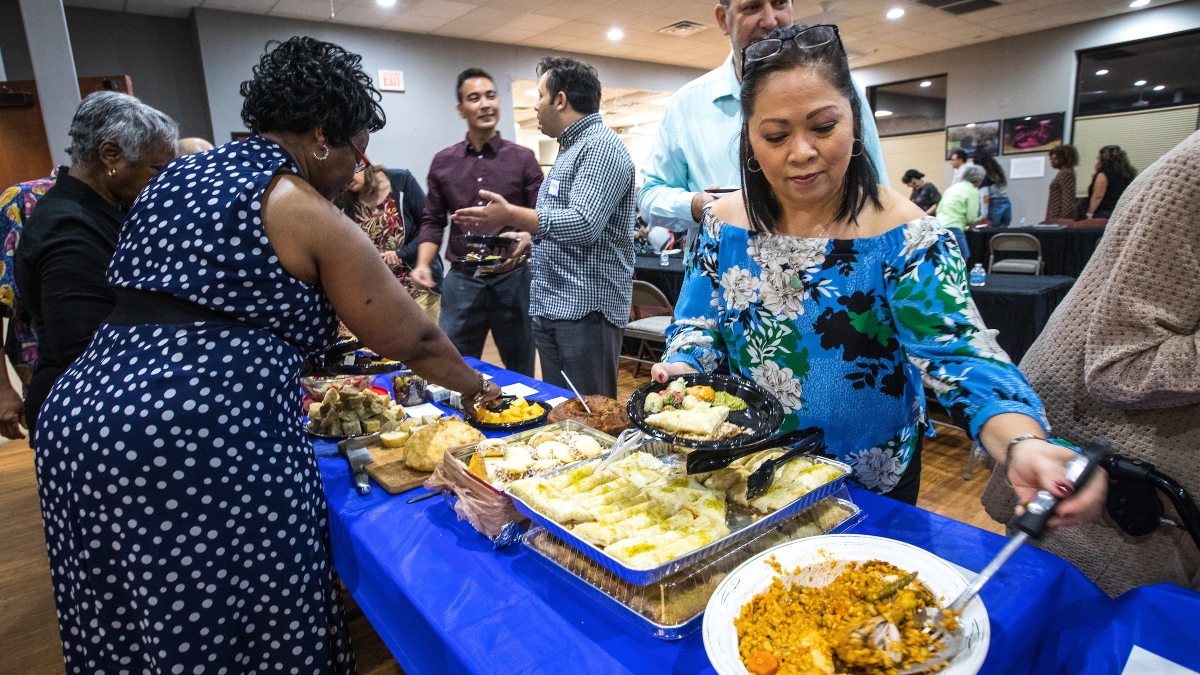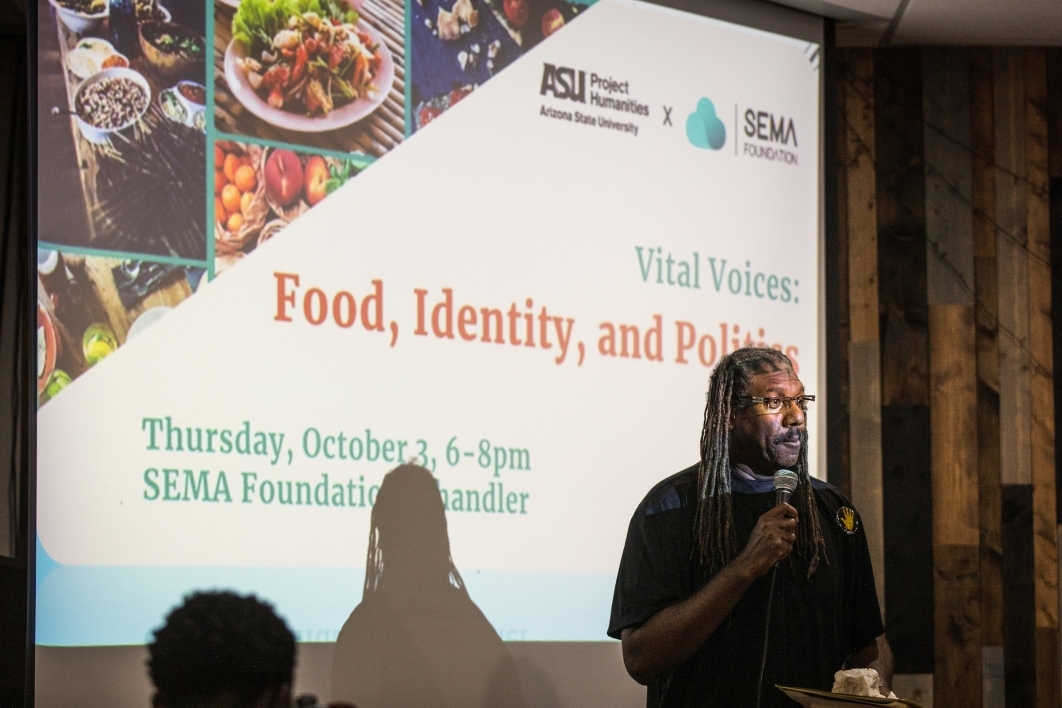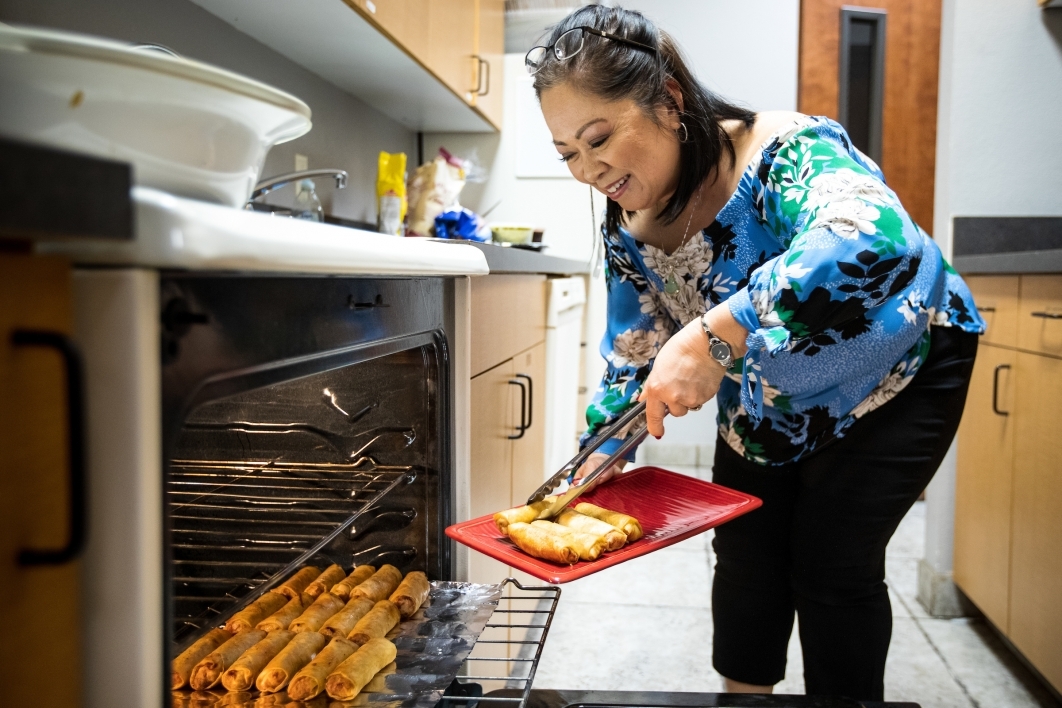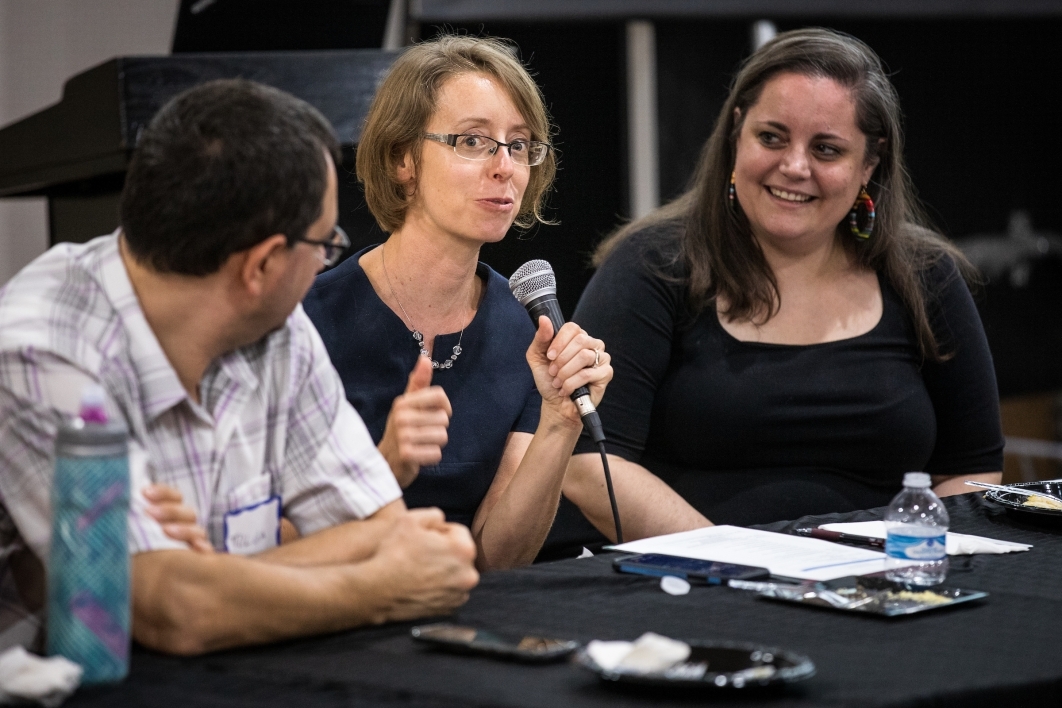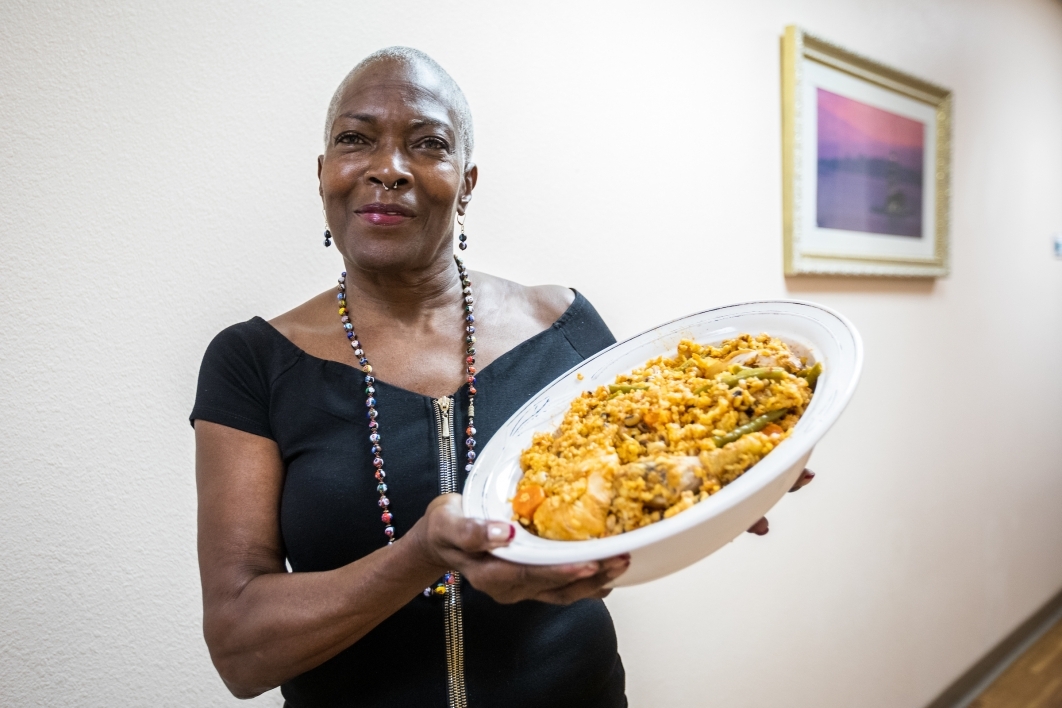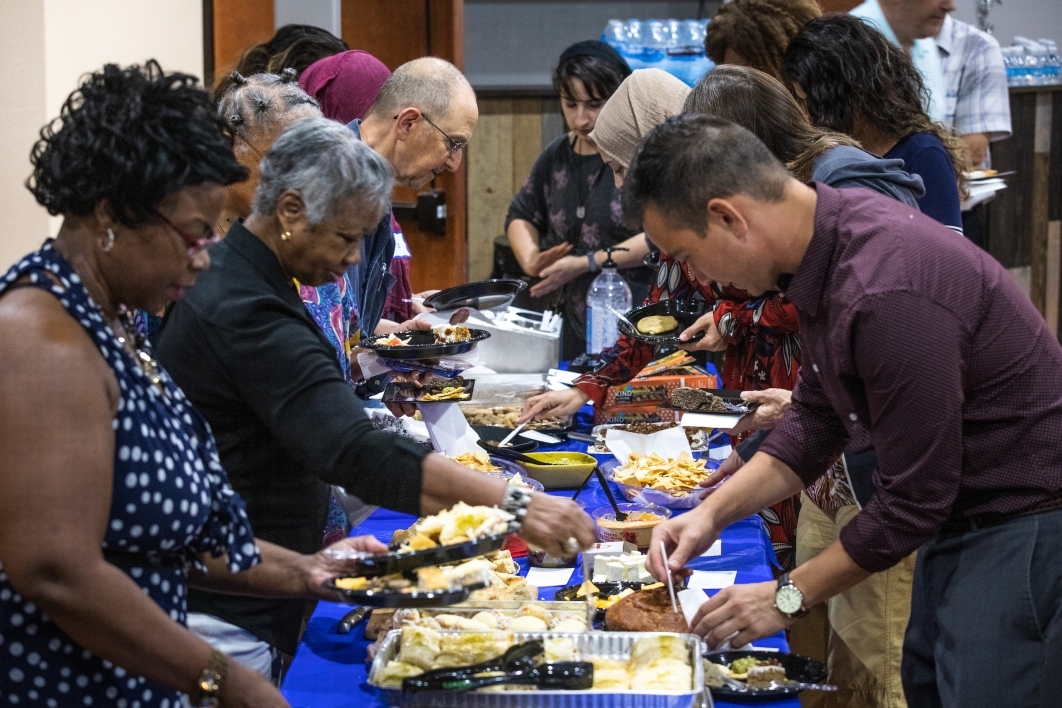If you’re Italian, you don’t miss Mama’s “red lead” on Sunday night.
If you’re German, it’s schnitzel and kraut.
In the South, they like things fried and usually soaked in gravy.
Food is not only a staple of life, but a staple of one’s own identity; that’s the idea behind an Arizona State University engagement program designed to examine and discuss how foods define us.
“Everyone on the planet has some sort of relationship with food. Humans' relations with food are complex and often complicated by time, place, circumstance and space,” said Neal Lester, professor of English and director of ASU's Project Humanities. “This program looks not only at how, when and why food — and food preparation even — brings individuals and communities together but also how food, food behaviors and values associated with and ascribed to food separate us.”
Project Humanities, an award-winning initiative, hosted “Vital Voices: Food, Identity and Politics” last week in Chandler to highlight how food brings people together, how it creates gaps within society and what distinguishes “good food” from “bad food.”
The program was the brainchild of Jocelyn Booker-Ohl, a coordinator with Project Humanities.
“Food in America takes on many different meanings and weaves itself into health, nutrition, relationships, economics, cultural appropriation, sustainability, waste and humanity,” Booker-Ohl said. “Culturally, we need to talk about food and the way we approach it.”
Attendees were asked to bring a favorite dish, passage, song, photograph, personal story, performance, poem or artifact that embodies a personal, familial or communal relationship with food.
The dialogue turned out to be as spicy as some of the dishes, which represented India, Argentina, Vietnam, Africa, the Middle East and various regions of the United States.
“In our culture, food brings family together,” said Chantal Van Klompenberg, who after raising her children returned to ASU to obtain her degree from the Hugh Downs School of Human Communication. She prepared Vietnamese spring rolls for the crowd of approximately 50 people, including her 31-year-old son. “It was our down time together. Our catch up time. We made them for special occasions. Some of the best memories my children have growing up is preparing spring rolls.”
For ASU alum Adebiyi Banjoko, one of five expert panelists invited to the program, food is a good way to explore another person's culture.
“I was born in Chicago but became interested in African traditions when Dr. Maulana Ndabezitha Karenga created Kwanzaa in 1966,” said Banjoko, who brought jollof rice, a West African dish, to the event. “So this is no longer about my celebrating my culture but sharing it with other people.”
Scottsdale resident Ramona Ferrara brought carrot cake prepared by her brother. She said it was an original recipe from her mother and a way for them to preserve her memory and recall the past.
“When I was growing up, we had this old-fashioned metal grinder, and we’d stick the carrots in and they’d come out all slivered and it was pretty cool,” said Ferrara, who is originally from Massachusetts. “This was the basis for her carrot cake. Mom was a dessert person and made them for big meals.”
But not everyone was so sentimental about food.
Ahmad Daniels, a transformational facilitator, life coach and founder of Tempe-based Creative Interchange, said food should be viewed as a “mind, body and spirit connection.”
“We eat food for three main reasons: growth, maintenance and repair,” said Daniels. “There’s a common denominator between what we eat and how we think … when your body is in touch with itself, it will let you know what it needs.”
Joan McGregor, a professor with the School of Historical, Philosophical, and Religious Studies, researches food, food justice and food sustainability. She said addictive ingredients found in food are often created by the food industry and subsidized by the government.
“The food industry spends a lot of money on neuroscientists to look at the bliss point with salt, fat and sugar and how your brain lights up like it’s on heroin,” McGregor said. “Children are being diagnosed with diabetes now, whereas 30 years ago that was not the case. I feel like food is killing us. Let’s expose these types of injustices and let’s expose our government and corporations.”
Roseanne Schuster, a nutritionist with ASU’s School of Human Evolution and Social Change, said parents and caregivers are highly motivated to feed their kids nutritious meals and want them to have a healthy relationship with food. However, that’s not always a straightforward path to navigate.
“It often feels like food is under attack with the rise of various health crises,” said Schuster. “Many times food companies try and trick us into foods we think are nutritious but masquerade as something else. So education is important.”
Top photo: Chantal Van Klompenberg samples some African pilaf at Project Humanities' "Vital Voices: Food, Identity, and Politics" on Thursday, Oct. 3, 2019, at the Sema Foundation in Chandler. The attendees brought favorite dishes, photographs and stories that represented their personal or communal relationships. Photo by Charlie Leight/ASU Now
More Health and medicine
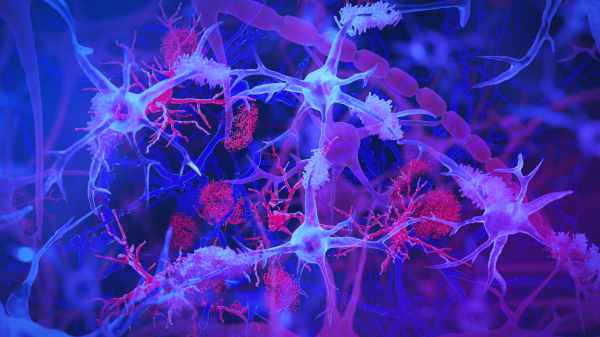
The surprising role of gut infection in Alzheimer’s disease
Arizona State University and Banner Alzheimer’s Institute researchers, along with their collaborators, have discovered a surprising link between a chronic gut infection caused by a common virus and…

ASU, University of Wisconsin partner to empower Black people to quit smoking
Arizona State University faculty at the College of Health Solutions are teaming up with the University of Wisconsin to determine which treatments work best to empower Black people to quit…

New book highlights physician wellness, burnout solutions
Health care professionals dedicate their lives to helping others, but the personal toll of their work often remains hidden.A new book, "Physician Wellness and Resilience: Narrative Prompts to Address…
